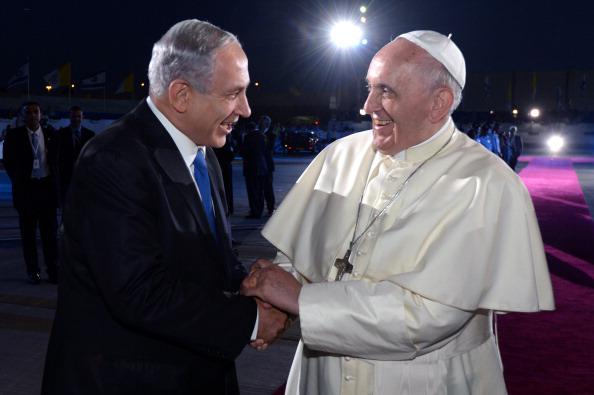The Vatican released a document Thursday addressing relations between Catholics and Jews. Some outlets have reported that the statement includes an “unprecedented” finding that Jews can achieve “salvation” without being converted to belief in Jesus. Is this really a groundbreaking doctrinal change for the church? And can Jews (according to Catholics) really go to heaven?
Not quite and yes, says James Martin, a Jesuit priest and editor-at-large of America magazine. The new statement, Martin says, is a “refinement of Nostra Aetate, the Second Vatican Council’s great document on relations with non-Christian religions, which revolutionized the Vatican’s relationship with the Jewish people.” Nostra Aetate, released in 1965, was a landmark statement of reconciliation. An excerpt:
Furthermore, in her rejection of every persecution against any man, the Church, mindful of the patrimony she shares with the Jews and moved not by political reasons but by the Gospel’s spiritual love, decries hatred, persecutions, displays of anti-Semitism, directed against Jews at any time and by anyone.
Even apart from the 1965 statement, the idea that salvation—eternal life in heaven—can be available to those who did not declare a belief in Jesus’ divinity during their lifetimes is one that Catholics are open to. How exactly does that work, given that the belief that Jesus is the Messiah has been the defining characteristic of the Catholic Church’s idea of salvation for millennia? Well, the new Vatican document says: That’s a mystery. It literally says that:
That the Jews are participants in God’s salvation is theologically unquestionable, but how that can be possible without confessing Christ explicitly, is and remains an unfathomable divine mystery.
Martin spoke in similar terms. “My Jewish friends who live good and holy lives, I believe, will achieve salvation,” he told me. “How that can happen without professing faith in Jesus Christ is a mystery.” Per Martin, the 2015 document makes explicit a belief in potential Jewish salvation that was laid out by St. Paul in his letter to the Romans (read the sixth paragraph here for more on that) but was ignored during the long period of Jewish-Catholic antagonism that the church has now repudiated. “It comes from St. Paul, it was lost for centuries, it was recovered by the Second Vatican Council and it now it’s being refined by this document,” Martin says. In other words, the church says that Catholics should have always believed in possible Jewish salvation, even if they didn’t always say they did because of anti-Semitism.
By the way, this was also part of Nostra Aetate:
The Church regards with esteem also the Moslems … Since in the course of centuries not a few quarrels and hostilities have arisen between Christians and Moslems, this sacred synod urges all to forget the past and to work sincerely for mutual understanding and to preserve as well as to promote together for the benefit of all mankind social justice and moral welfare, as well as peace and freedom.
Mutual understanding and peace—just some concepts to consider thinking about right now.
